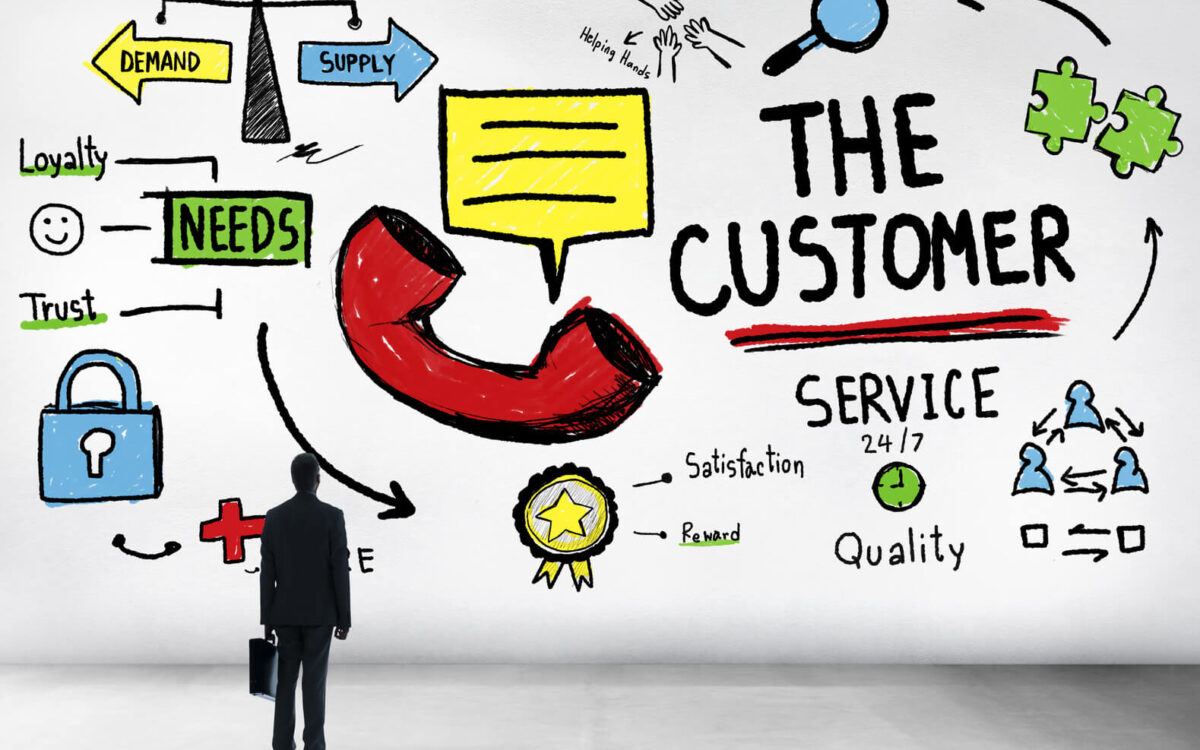 October 7, 2025
October 7, 2025
In Uganda’s fast-changing business environment, customer loyalty is more than just a nice-to-have — it is the foundation of long-term survival. Whether you’re a SACCO offering small loans, a bank handling millions in deposits, a retail store serving everyday consumers, or a growing e-commerce platform, retaining customers is often cheaper and more profitable than constantly chasing new ones.
But here’s the challenge: customers today are not just influenced by products or prices; they are shaped by experiences. How a customer interacts with your business across different communication channels — from SMS and WhatsApp to phone calls and emails — determines whether they stay loyal or look for alternatives.
This is where omnichannel support comes in. It allows businesses to provide a seamless, consistent, and personalized experience across multiple communication platforms. Unlike multichannel support, where channels exist separately, omnichannel systems connect everything together, so customers enjoy a unified journey.
In Uganda, where mobile adoption is booming and digital services are on the rise, businesses that embrace omnichannel strategies are building stronger customer relationships, reducing churn, and driving repeat business.
This article explores, in depth, how omnichannel support works, why it matters in Uganda, its benefits for loyalty, and how businesses can practically implement it.
Understanding Omnichannel vs Multichannel
Before diving deeper, let’s clear a common confusion. Many businesses believe that having multiple channels automatically means they are customer-focused. But the truth is: multichannel ≠ omnichannel.
- Multichannel: Customers can interact with your business through different platforms (phone, email, SMS, Facebook, WhatsApp). But these channels operate independently. If a customer complains on Facebook, the call center has no idea. If they pay via mobile money, the customer care team may not instantly see it.
- Omnichannel: All channels are connected. Customer interactions flow seamlessly from one platform to another. If someone raises an issue on WhatsApp, a call center agent can see it and continue the conversation by phone without the customer repeating themselves.
This difference matters. In Uganda, where customer patience is limited and competition is rising, omnichannel systems reduce friction and create trust.
Why Customer Loyalty is a Critical Asset in Uganda
Ugandan businesses face several realities that make customer loyalty an urgent priority:
- High Competition Across Sectors
Banks, SACCOs, telecoms, retail shops, and even boda-hailing apps are fighting for the same customer base. - Word-of-Mouth Influence
Ugandan consumers trust recommendations from friends and family. A single bad customer service experience spreads quickly. - Cost of Acquiring New Customers
Research shows it is 5–7 times more expensive to win new customers than to retain existing ones. - Financial Inclusion Growth
With over 30 million mobile money accounts, customers expect responsive, digital-first services. Loyalty determines whether they stick to one provider or switch.
In this environment, omnichannel support becomes a loyalty engine.
How Omnichannel Support Builds Loyalty
1. Consistency Across Channels Builds Trust
Imagine a customer who applies for a loan online. They receive an SMS confirming receipt, a WhatsApp update when the loan is approved, and a call from an agent for disbursement details. This consistent flow reassures them that the business is reliable.
In Uganda, where some institutions still provide disjointed services, consistency is a loyalty differentiator.
2. Convenience Improves Satisfaction
Nothing frustrates a customer more than repeating themselves. With omnichannel, a query raised by email can be followed up by phone without loss of information. This convenience boosts satisfaction and loyalty.
3. Personalization Strengthens Emotional Bonds
Omnichannel platforms allow businesses to personalize communication:
- Sending birthday SMS offers to retail customers.
- Providing loan repayment reminders tailored to due dates.
- Offering exclusive promotions based on past purchases.
Customers who feel recognized are more likely to stay loyal.
4. Debt Collection Becomes Customer-Friendly
Ugandan businesses, especially in finance, face rising Non-Performing Loans (NPLs). Omnichannel debt recovery — combining SMS reminders, polite WhatsApp nudges, and structured phone calls — increases repayment while avoiding aggressive tactics that damage relationships.
5. Enhances Business Reputation
In an economy where reputation can make or break a company, omnichannel ensures customers perceive your business as professional, organized, and customer-first.
Case Studies: Omnichannel Success in Uganda
Case Study 1: SACCO with Loan Recovery Challenges
A Kampala SACCO had 30% overdue loans. After adopting omnichannel reminders — SMS three days before due dates, WhatsApp reminders on due dates, and call center follow-ups — repayment rates improved by 40% within six months. Members appreciated the respectful reminders, and trust increased.
Case Study 2: E-commerce Business
An online store in Uganda integrated SMS order confirmations, WhatsApp delivery updates, and after-sales email surveys. This not only reduced complaints about lost deliveries but also improved repeat purchases by 35%.
Case Study 3: Healthcare Clinic
A private hospital used SMS for appointment reminders, calls for confirmations, and WhatsApp for lab results. Patient no-shows reduced, and loyalty improved.
These examples show that omnichannel is not just for big corporates — even SMEs can benefit.
Practical Steps for Implementing Omnichannel Support in Uganda
- Map the Customer Journey
Understand how customers interact with your business — from awareness to purchase, payment, and after-sales. - Choose the Right Channels
Focus on channels your customers use most:
- Phone calls (still dominant in Uganda)
- SMS (for mobile money and reminders)
- WhatsApp (hugely popular with youth and SMEs)
- Social media (Facebook, Twitter, Instagram)
- Email (corporate clients and professionals)
- Adopt Integrated Systems
Invest in CRMs or partner with call centers that unify multiple platforms into one dashboard. - Train Your Team
Agents must handle all channels with consistent tone and professionalism. - Personalize and Automate
Use automation for reminders but add a human touch when necessary. - Measure and Improve
Track KPIs like:
- Customer satisfaction scores (CSAT)
- First response time
- Debt recovery rates
- Customer retention rates
Benefits Beyond Loyalty
Omnichannel isn’t just about loyalty — it delivers wider business benefits:
- Revenue Growth: Loyal customers spend more.
- Lower Costs: Automated SMS and WhatsApp reduce expensive field visits.
- Data Insights: Businesses learn customer preferences and pain points.
- Operational Efficiency: Integrated systems reduce duplication of work.
- Competitive Advantage: Businesses stand out in crowded markets.
Challenges Ugandan Businesses Face with Omnichannel
- High Technology Costs: CRMs and automation systems can be expensive.
- Infrastructure Gaps: Internet penetration in rural areas is still limited.
- Training Needs: Staff must adapt to handling integrated systems.
- Change Resistance: Many SMEs still rely on single-channel communication.
However, outsourcing to professional partners like Boresha Credit Services makes omnichannel adoption affordable and practical.
The Role of Call Centers in Omnichannel Loyalty
Call centers are at the core of omnichannel success. They act as communication hubs where phone calls, SMS, WhatsApp, and even email are handled in a synchronized way.
For debt collection, this means a debtor doesn’t just receive random calls. Instead, they get a reminder SMS, followed by a WhatsApp nudge, and finally a polite phone call if needed. This structured approach increases recovery while keeping customers satisfied.
For customer service, call centers ensure no query slips through the cracks — whether it starts on social media or over the phone.
FAQs
Q1: What is the key difference between omnichannel and multichannel support?
Multichannel offers many platforms separately, while omnichannel integrates them into a seamless, unified experience.
Q2: Why is omnichannel support important for Ugandan businesses?
Because customers expect consistent and convenient service across SMS, calls, WhatsApp, and digital platforms. It builds trust, loyalty, and retention.
Q3: Can SMEs in Uganda afford omnichannel systems?
Yes. Outsourced call center services provide omnichannel solutions without high infrastructure costs.
Q4: How does omnichannel help with debt recovery?
By combining SMS, WhatsApp, and calls, businesses recover loans more effectively while maintaining relationships.
Q5: What industries in Uganda benefit most from omnichannel?
Banks, SACCOs, e-commerce, healthcare, retail, and telecoms benefit significantly.
Q6: What role do call centers play in omnichannel?
They unify communication channels, provide professional handling, and ensure data-driven insights.




